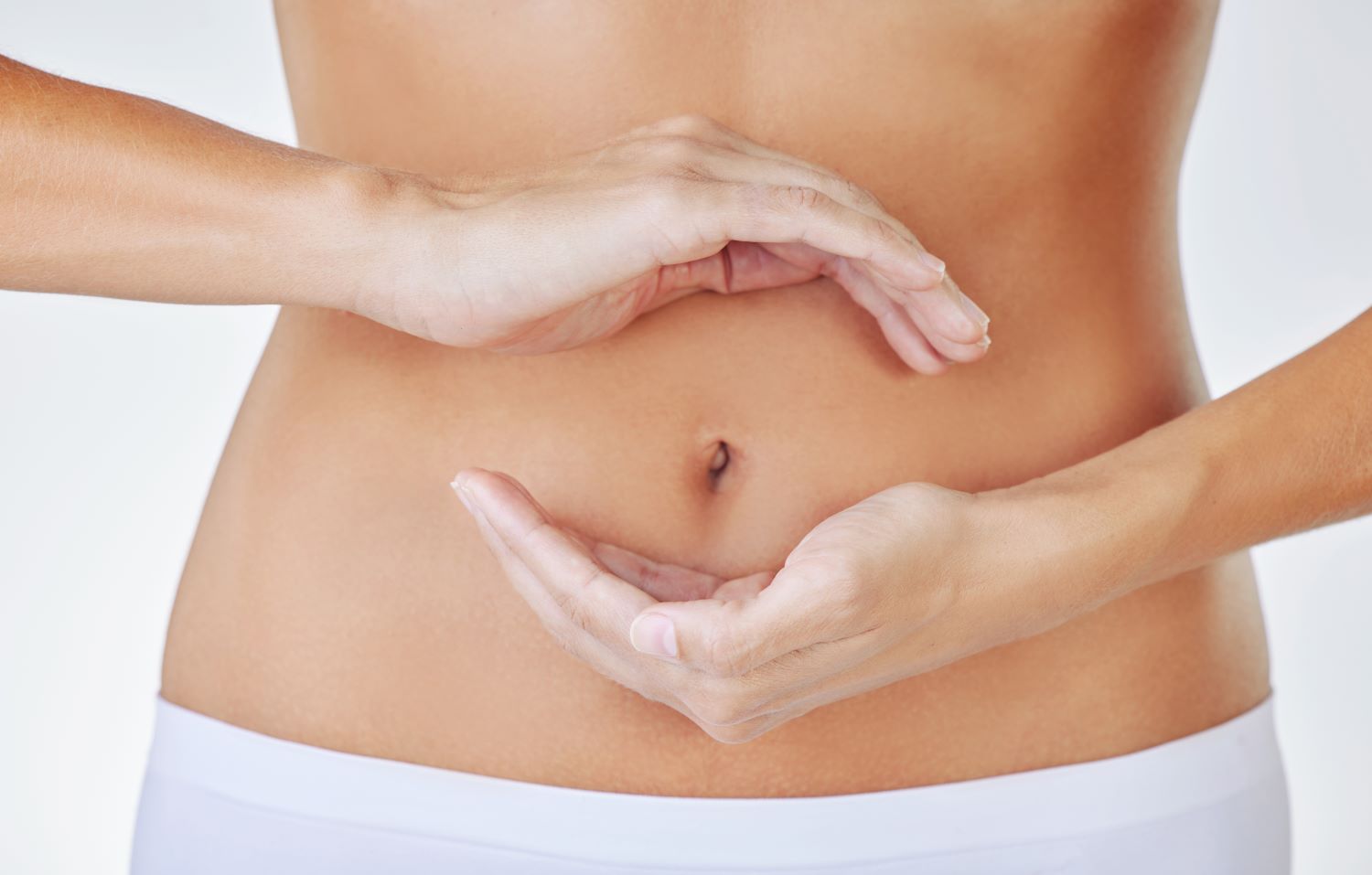Dysbiosis
The gastrointestinal (GI) tract is home to trillions of microscopic bacteria, fungi, protozoa, archaea, and viruses. 90% of the microbiome consists of bacteria, which number more than 1,000 different species.
Gut bacteria are typically beneficial. However, when the balance of good and bad gut bacteria goes awry, dysbiosis occurs.
How We Help
Dysbiosis is an imbalance between the microbiome bacteria. Gut dysbiosis can happen for many reasons and lead to disturbances in other microbiomes. It is also a risk factor behind many common diseases and disorders.
Want to learn more about dysbiosis? Revolution Gut Health has the resources you need to understand how it impacts your health. You can also request a free health consultation to determine if your gut is healthy.
Disclaimer: The health information on this site is provided for general informational and education purposes only and is not a substitute for professional advice. Accordingly, before taking any actions based upon such information, we encourage you to consult with the appropriate professionals. The use or reliance of any information contained on this site is solely at your own discretion. Revolution Gut Health does not claim to heal, treat or cure any of the conditions mentioned.
What Is Dysbiosis?
Dysbiosis is an imbalance of bacteria.
This can happen when there is an overgrowth of certain types of bacteria or a depletion of other bacteria.
Dysbiosis is when gut bacteria no longer live together symbiotically. This imbalance can lead to various health problems, including digestive issues, immune system problems, and weight gain.

The 3 Types of Dysbiosis
Experts distinguish between three types of dysbiosis. They include:
Type 1
Occurs when too many good bacteria die off in the gut
Type 2
Occurs when too many pathogenic bacteria grow in the gut
Type 3
Occurs when too many good bacteria die off and too many pathogenic bacteria grow
Sometimes, people can have just one type of dysbiosis. However, it is more common to have all three types simultaneously.
Dysbiosis Symptoms
Gut dysbiosis can cause a wide variety of symptoms. These symptoms occur in the GI tract and other areas of the body, including the urogenitals, skin, immune system, and central nervous system (CNS).
Each region has its own microbiome or is intimately connected to the gut microbiome.
Dysbiosis Symptoms in the GI Tract
The GI tract consists of the mouth, esophagus, stomach, small intestine, large intestine, and anus. Dysbiosis may cause the following GI tract-related signs and symptoms:
- Poor oral health (e.g., tooth decay, cavities, bleeding gums)
- Bloating
- Stomach pain or discomfort
- Nausea
- Diarrhea
- Constipation
- Burping
- Bloating
- Gas
These symptoms may arise first. After all, dysbiosis has a direct impact on the GI tract.
Dysbiosis Symptoms in the Urogenitals
The urogenitals encompass all the organs of the urinary tract and genitals in men and women. Signs to watch for that may indicate dysbiosis has affected these regions include:
- Painful urination
- Unusual discharge
- Rashes
- Itching
These issues could also be symptomatic of another condition, so talking to a healthcare provider to learn more is essential.
Dysbiosis Symptoms in the Skin
The skin is the body’s largest organ. As skincare enthusiasts may know, diet can significantly impact skin health. So, it should be no wonder that changes to the way the gut breaks down and absorbs nutrients can cause:
- Dermatitis
- Psoriasis
- Acne
- Dandruff
- Skin cancer
Research on the gut-skin connection is still in its infancy and more studies are needed to determine how essential gut health is for good skin.
Dysbiosis Symptoms in the Immune System
Believe it or not, the gut is integral to a healthy immune system. Specifically, the gut regulates immune system homeostasis or balance. When the gut becomes imbalanced, immunity does, too, leading to an increased risk of:
- Infection
- Autoimmune disorders
- Delayed healing
Dysbiosis can also lead to fatigue due to the immune system’s overactivity. However, fatigue could also stem from the gut microbiome’s connection to the brain.
Dysbiosis Symptoms in the CNS
The GI tract is connected to the CNS via the gut-brain axis. The axis is bidirectional, meaning the brain can cause changes in the gut and, importantly, the gut may lead to differences in brain function, such as:
- Trouble concentrating
- Mood swings
- Irritability
- Anxiety
- Depression
Luckily, identifying and treating the underlying cause(s) of changes to the gut microbiome can help alleviate these symptoms.
Have A Question?
Contact our team for a FREE discovery call.
Not accepting new patients at this time
What Causes Dysbiosis?
Three main factors cause dysbiosis: antibiotic use, changes in diet, and physical and mental stress. Let’s briefly discuss each of these risk factors.
Antibiotics
Antibiotics kill bacteria to help treat infection. These drugs are often prescribed for many common illnesses. Yet, as a side effect, they can also kill off good bacteria living in the GI tract. Damage to the microbiome depends on how much and how long someone takes it.
Stress
Stress does not just have an effect on the gut’s microbiome. It can also cause harm to other microbiomes throughout the body, including the skin. Specifically, stress can decrease good gut bacteria and cause Type 1 or Type 3 dysbiosis.
How Is Dysbiosis Diagnosed?
Dysbiosis is diagnosed with a thorough medical exam and symptom assessment. After ruling out other potential causes of dysbiosis symptoms, a doctor may recommend dysbiosis testing.
Dysbiosis Test
There are three common dysbiosis tests: organic acid, CDSA, and hydrogen breath tests.
Organic Acid Test
Organic acid test is a fancy name for a particular type of urinalysis. During this test, patients collect a urine sample and submit it to a lab for analysis. The lab will look for levels of certain organic acids produced by gut bacteria.
CDSA
CDSA stands for comprehensive digestive stool analysis. This test involves taking a stool sample and submitting it to a lab for analysis. The lab will investigate samples for levels of bacteria, yeasts, and fungi originating from the gut.
Hydrogen Breath Test
A hydrogen breath test involves drinking a sugar solution and taking a breath sample. The samples will be analyzed for certain gasses gut bacteria release when they ingest sugar. These gasses include hydrogen, methane, and hydrogen sulfide.
Dysbiosis Treatment
Treatment for dysbiosis primarily focuses on dietary changes. Stress reduction can also be helpful. People who can’t eliminate stress may practice relaxation techniques like exercise, deep breathing, or meditation.
Sometimes, diet and life changes alone are not enough to ease symptoms. In this case, doctors may recommend one or more of the following medications:
- Ciprofloxacin for gut infections
- Rifaximin for irritable bowel syndrome (IBS)-like symptoms
- Co-trimoxazole for gut and urinary tract infections
Of course, using antibiotics could be the reason for dysbiosis symptoms in the first place. In that case, a doctor would likely recommend ceasing the medication until the symptoms resolve.
Dysbiosis Diet
Processed foods and seed oils should be removed entirely from a person’s diet where feasible.
Diet is often to blame for imbalances in the gut microbiome. People may be deficient in specific nutrients, eat too many sulfur-rich foods, or not eat enough beneficial ingredients.
Nutritious Supplements
A general list of supplements that someone can consider using to support improving their Dysbiosis can include B-complex vitamins, calcium, magnesium, beta-carotene, and zinc as they are some of the best supplements for a balanced gut. Individuals can also look into prebiotics and probiotics, which can directly impact gut bacteria diversity.
Sulfur-Rich Foods
Sulfur-rich foods are not all bad since they are a mineral that is needed for us to survive. Still, it may be best to avoid them until dysbiosis symptoms are under control. Foods to consider limiting or avoiding include:
- Animal proteins, especially processed ones
- Complex carbs in corn, oats, and bread
- Nuts, seeds, grains, and legumes
- Allium and cruciferous vegetables
Other items that may exacerbate or cause dysbiosis include certain fruits (e.g., bananas, apples, and grapes), dairy products (e.g., milk, yogurt, and cheese), alcohol, and added sugars.
Healthful Ingredients
The good news is that some foods benefit the gut microbiome. They include:
- Leafy greens like kale and spinach
- Fatty fish like salmon and tuna
- Lean proteins like chicken and turkey
These ingredients do not just benefit dysbiosis. They are also great for someone’s overall health.
Dysbiosis as a Risk Factor for Other Diseases
Dysbiosis causes symptoms of its own. Yet, it may also be a risk factor behind many other health conditions, including but not limited to:
- IBS
- Colitis
- Candida
- Celiac disease
- Leaky gut syndrome
- Diabetes
- Obesity
- Polycystic ovary syndrome
- Liver disease
- Heart disease
- Dementia
- Parkinson’s disease
- Colon or rectal cancer
Prevention and treatment are crucial to avoiding the potential consequences of dysbiosis.


Dysbiosis Prevention
A few tips for preventing gut dysbiosis are:
- Eat a nutritious and well-rounded diet with a prebiotic or probiotic, if necessary
- Manage your stress levels when you can
- Avoid alcohol when possible
- Reduce levels of pathogenic bacteria by practicing good oral and sexual health
Dysbiosis can be challenging, but it doesn’t have to be when you follow these tips.
Unlock a healthier you today!
Take the first step towards a happier, healthier life with our FREE discovery call.
Not accepting new patients at this time